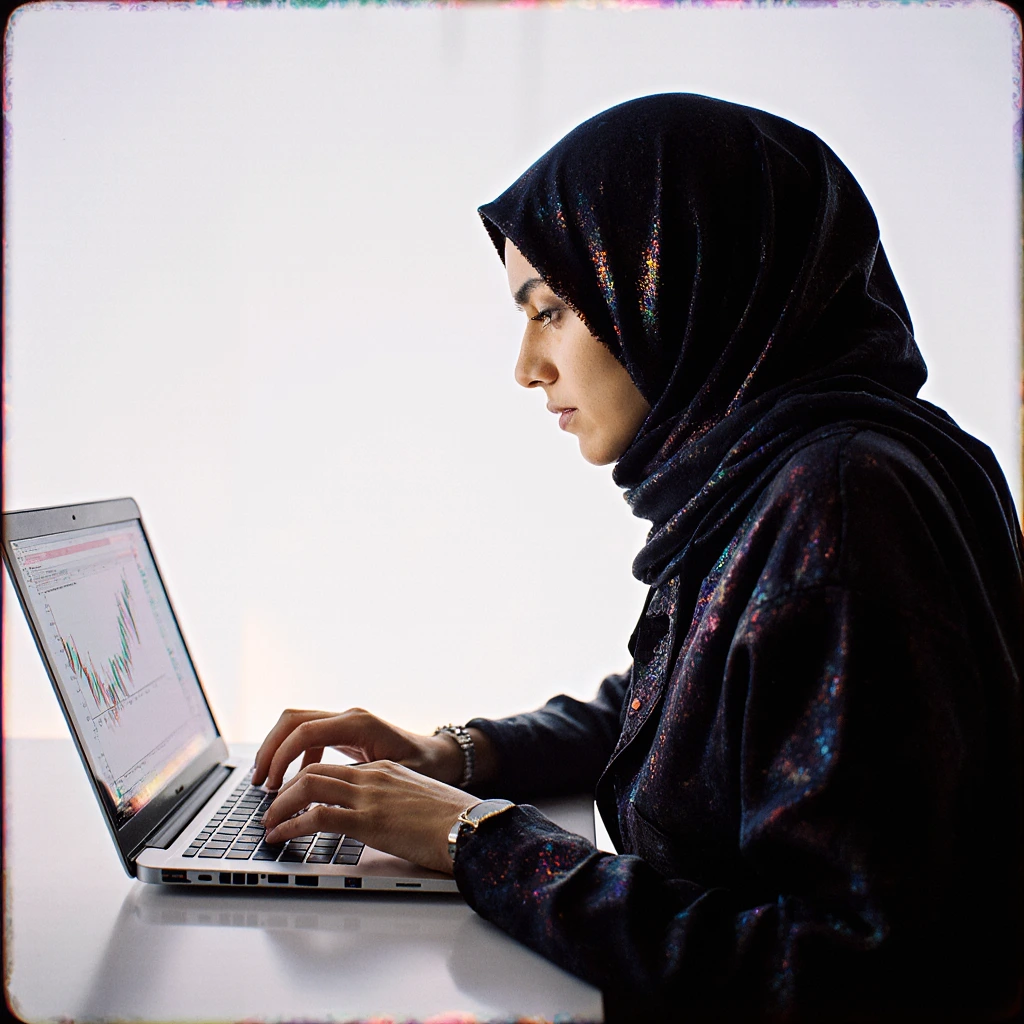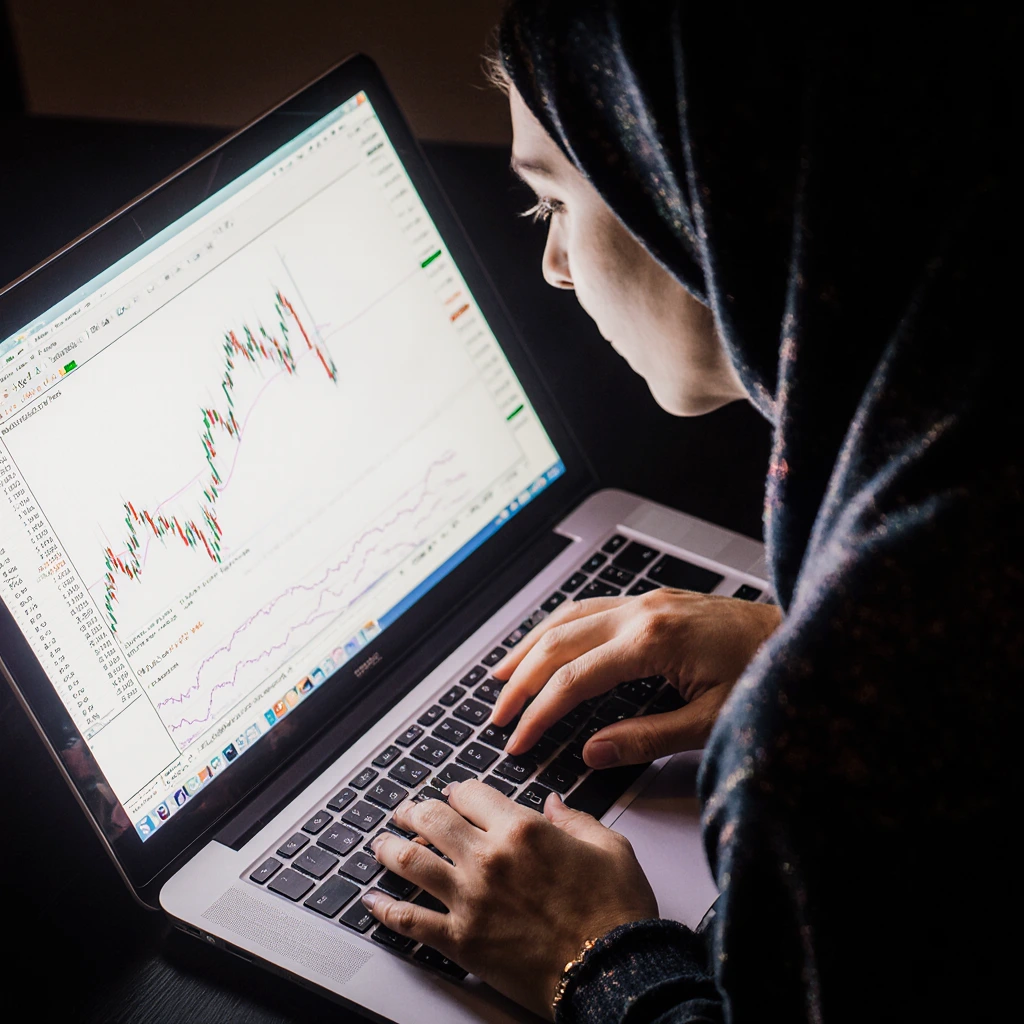
Key Takeaways
- Halal investment follows Islamic finance principles, avoiding interest (riba), uncertainty (gharar), and gambling (maisir).
- Forex trading can be halal under specific conditions such as spot transactions and swap-free Islamic accounts.
- Alternatives beyond forex include halal stocks, ETFs, sukuk, real estate, commodities, and even crypto, though the latter is debated.
- Investors must carefully screen assets for Sharia compliance, use verified brokers, and align choices with risk tolerance and faith-based ethics.
- Building a diversified halal portfolio ensures both financial growth and religious adherence.
What Does Halal Investment Mean?
Halal investment is about more than just profit; it’s about financial growth that aligns with Islamic values. Muslims seeking to grow wealth must respect the rules set out in Sharia law, ensuring money works in ethical and permissible ways. Incorporating social trading platforms, such as MetaTrader social trading features or global social trading networks, can provide additional avenues for ethical investment opportunities, allowing investors to collaborate and share insights while adhering to Islamic financial principles.
Core Principles of Islamic Finance
Islamic finance rests on three foundations:
- No Riba (Interest) – Lending with guaranteed interest is strictly prohibited.
- No Gharar (Excessive Uncertainty) – Contracts must be clear, transparent, and not speculative.
- Ethical Alignment – Investments should avoid prohibited industries such as alcohol, gambling, or weapons.
Avoiding Riba (Interest) and Gharar (Uncertainty)
Instead of interest, Islamic finance promotes profit-sharing models (like mudarabah) and risk-sharing contracts (like musharakah). This ensures fairness between parties and discourages exploitation.
Ethical and Sharia-Compliant Sectors
Halal investing is also available in a host of different sectors, for example, health and medical, technology, agriculture, real estate, and renewable energy. It is a way for individuals to build wealth while applying their wealth ethically or responsibly.
Forex Trading and Sharia Compliance
Forex is one of the largest and most liquid trading behaviours in the world, and as such will need to be assessed in terms of Sharia compliance for Muslim traders.
Why Conventional Forex Is Controversial in Islam
Conventional forex trading often includes rolling over interest (swaps) and speculative trades with high leverage, which can amount to riba and gharar.
Halal Forex Conditions (Spot Trading and No Riba)
Forex trading can be halal if it follows these rules:
- Trades must be spot transactions (settled immediately).
- No swap or overnight interest should apply.
- Contracts must avoid uncertainty and gambling-like speculation.
Islamic Forex Accounts and Swap-Free Models
Many brokers offer Islamic forex accounts, also called swap-free accounts, designed to eliminate interest charges. These accounts allow Muslim traders to participate in the currency market without violating faith principles.
Halal Alternatives Beyond Forex
A search for diversification will lead a Muslim investor to various halal investment options other than forex.
Investing in the Stock Market under Sharia
For stocks to be halal, the business must be permissible and not overly reliant on interest-based debt. The screening process includes the checking of financial ratios and section activities.
Halal ETFs and Mutual Funds
Sharia-compliant ETFs are those that pool funds into screened companies. Halal tech ETFs and Islamic equity funds are examples that assist retail investors in compliance.
Real Estate and Sukuk (Islamic Bonds)
Investing in real estate is attractive to Muslims because they include tangible assets. Sukuk cannot be referred to as bonds in the conventional sense because they are structured as certificates that are asset backed and do not have fixed interest.
Commodities and Precious Metals Trading
Trading in gold, silver, and agricultural products is allowed as long as trades are spot-based and transparent. Many Muslim investors use precious metals for hedging and wealth preservation.
Crypto and Digital Assets: A New Debate in Islamic Finance
Opinions differ on whether cryptocurrency is halal. Some scholars argue crypto is speculative (haram), while others see it as a digital commodity. Sharia boards continue to debate Bitcoin, Ethereum, and stablecoins.
When Does Trading Become Haram?
Not all trading is halal, even if the asset itself is permissible.
Excessive Speculation and Gambling (Maisir)
If trading turns into gambling-style speculation, it falls into maisir, which is prohibited.
Trading with Leverage and Borrowed Money
Margin trading often involves interest-bearing loans, making it non-halal. Leverage should be avoided unless offered in a swap-free, Sharia-compliant structure.
Deceptive Contracts and Lack of Transparency
Hidden fees, unclear contracts, and manipulative clauses violate Islamic finance principles.
Investing in Prohibited (Haram) Industries
Any involvement in alcohol, pork, gambling, adult entertainment, or weapons is forbidden, regardless of profits.
How to Verify if an Investment is Halal

Muslims can rely on screening methods and expert guidance to ensure compliance.
Screening Companies and Assets for Sharia Compliance
Halal screening involves filtering based on:
- Industry activity (no haram products).
- Debt-to-equity ratio thresholds.
- Avoidance of interest-based income.
Role of Islamic Finance Boards and Fatwas
Many investment products are certified by Sharia boards or scholars, who issue fatwas confirming compliance. Always check for recognized certifications.
Practical Tools and Apps for Halal Screening
Platforms like Zoya and Islamicly help retail investors screen stocks and ETFs for halal compliance.
Pros and Cons of Different Halal Investment Options
Each asset class offers benefits and trade-offs.
Halal Forex – Limited But Flexible
✅ Accessible and liquid
❌ Must avoid swaps and excessive leverage
Halal Stocks and ETFs – Growth with Compliance
✅ Long-term growth potential
❌ Requires strict screening
Sukuk and Real Estate – Stability and Tangible Assets
✅ Lower risk and tangible backing
❌ Slower returns compared to equities
Crypto and Alternatives – High Risk, Ongoing Debate
✅ Potential for growth
❌ High volatility and unclear Sharia stance
Building a Halal Investment Portfolio
The foundation of growth for sustainability is diversification with Sharia-compliance.
Diversification Across Asset Classes
A halal portfolio is likely to include stocks, sukuk, real estate, and commodities which spread across different asset classes thus reducing reliance on one market.
Balancing Risk and Return within Sharia investing
Investors will need to consider their own risk tolerance and keep speculative investments to a minimum on the halal investment poker table. Conservative investors may want to keep halal stocks out of their portfolio and stay invested in sukuk and real estate, while growth investors may want to add halal stocks to increase overall potential.
Long-Term Wealth and Faith-Based Principles
Halal investing emphasizes patience and discipline, aligning financial goals with spiritual obligations.
Practical Steps to Start Halal Investing

Thanks to Islamic finance products, getting started is easier than even before.
Using the Right Halal Brokers or Platform
When you do find a broker, then make sure they are offering swap-free accounts, Sharia-certified ETFs or sukuk products. You will need to confirm that the broker is indeed compliant.
Setting Up an Islamic Trading or Investment Account
Opening a halal account involves selecting swap-free or Islamic product options. Many global brokers and Islamic banks provide them.
Applying Risk Management in Halal Trading
Use stop-losses, position sizing, and diversification to protect capital while staying within halal boundaries.
Conclusion: Walking the Line Between Faith and Finance
Halal investing allows Muslims to create wealth without compromising their faith. There are multiple instruments available – from forex with strict conditions, stocks, ETFs, sukuk and now crypto. The main issues are screening, discipline and diversification. Halal Investing means there will be no haram, yes. Halal investing allows Muslims to align their finances to the principles of justice, transparency and shared prosperity.
Frequently Asked Questions
Is Forex trading haram or halal in Islam?
Forex can be halal if it does not include any swaps and is not riba or speculative betting/gambling. Only spot trades in a swap-free account are halal.
What are the safest halal investments today?
Sukuk, real estate and halal ETFs are much safer and more stable than forex or crypto.
Is cryptocurrency halal for Muslims?
There is a divide between scholars; some classify crypto as halal commodities, while others warn that crypto is speculative and does not have intrinsic value.
Can Muslims invest in stocks and ETFs?
Yes, if the businesses are halal screened and the business is compliant with Sharia rules. Numerous halal ETFs exist.
How do I open a halal investment account?
Pick a broker who operates on Sharia principles or an Islamic bank, ask for an Islamic trading account, and ensure that all products are certified.